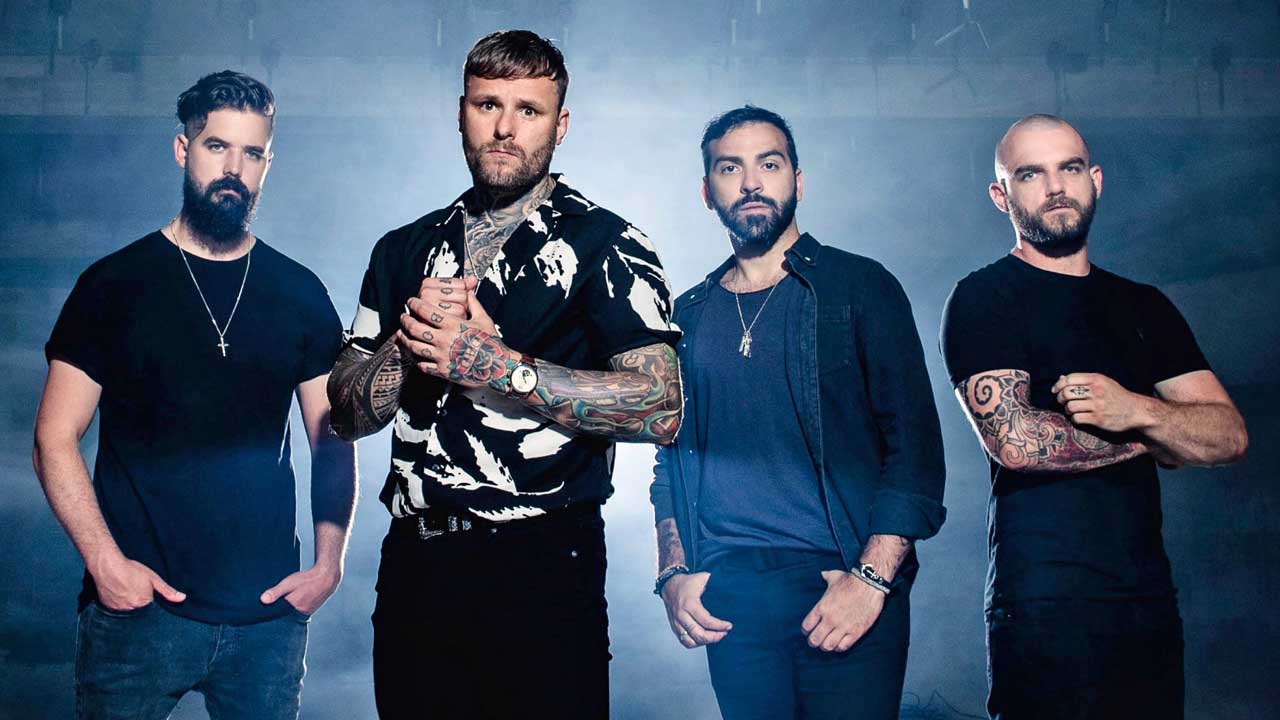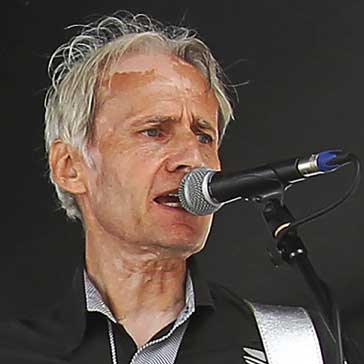Kris Barras is ticking items off his bucket list so fast there won’t be any left by the time he hits middle age. He recently played the Royal Albert Hall (with Black Stone Cherry) and the London Palladium (as part of an orchestral tribute to Led Zeppelin). In June he led his Kris Barras Band out on to the Second Stage at Download. And before that, at the age of 36, he played his first gig at Wembley Arena, with his childhood heroes Thunder.
“When I used to play in pub bands, if ever we were having a bit of a quiet night I used to shout out: ‘Good evening, Wembley!’,” Barras recalls, ahead of the latter show. “So it’s going to be quite cool to be able to say that for real.”
Barras is at home in Torquay, Devon. The sun is shining as he reflects on a life that’s taken him from local covers and wedding bands to the gates of the rock-star citadel – via an early detour into a career in mixed martial arts. He has emerged from a bleak period in lockdown with triumphant fourth album Death Valley Paradise, a collection that is heavier, harder, deeper and several shades darker than anything he has released before. Already a UK Top 30 chart success, the album has elevated him to the front rank of modern British hard rockers.
“Each album has gradually got heavier, and I’m always looking at ways to up the ante and make sure I’m improving,” Barras says. “So many factors went into this one. For the first time in my life I suffered depression, during the covid lockdown, and I got into some darker kinds of topics. But on the positive side it gave me time to seriously work on writing the songs. Some of them were written and rewritten five or six times over.”
My Parade, one of the standout tracks, released as a single last year, is a case in point. An uplifting anthem that sums up the Barras philosophy, it is simultaneously an expression of communal solidarity and ruthless self-determination: ‘I don’t give a fuck what people say/This is my parade, fall into line or get out of my way,’ he sings.
Two more factors “took it up a level”, according to Barras: “Switching up the band was the first thing. It’s no slight to the previous guys, fantastic players, but the new guys – Billy Hammet on drums and Kelpie MacKenzie on bass – are more on the same page with the stuff we like to play. Everything’s heavier, more powerful, just a lot more attitude and energy. From the first time we jammed together it was like: ‘This is it!’”
The other factor was bringing on board producer Dan Weller, the guitarist in prog-metal band SikTh best known as a producer for his innovative work with Enter Shikari. “As well as being an incredible musician, he’s got bat ears and lots of amazing ideas,” Barras says.
The album was recorded at Vada Studios, a residential facility in Warwickshire with a live studio room set in a 750-year-old chapel.
“We were completely immersed in the process,” says Barras. “And it was almost a bit of a release as well. We’d been caged up and hadn’t seen each other much. I like playing live. Studio time is never my favourite, but it was actually one of the best moments in my life. I remember sitting there having some beers with the lads, thinking: ‘This is the best thing ever.’”
Barras is a curious mixture of combative energy and driving, almost obsessive focus. The physical courage that enabled him to compete successfully as a cage fighter translates into an ultra-forceful aura of self-belief in his role as a musician. When I first met him, in July 2018, he was just about to play his first gig as the new frontman with Supersonic Blues Machine, the supergroup featuring session stars Kenny Aronoff and Fabrizio Grossi plus one Billy F Gibbons. I remember thinking how calmly and confidently Barras carried himself in such august company. Barras, however, remembers it slightly differently.
“It was probably the most nervous I’ve ever been before any gig,” he says. “They’re not my songs I’m singing. I had a lot of stuff to remember. There was a lot of pressure. But you can’t let it consume you. Same with the fighting. If I’d wanted to step into a cage and have a fight, there’s no point getting so terrified about it that I can’t get in there and do it. If I go: ‘Oh god, I’m playing with Billy Gibbons, what am I going to do?’, I won’t be playing with Billy Gibbons, because I’ll do a crap job and I’ll get fired.”
Far from getting himself fired, Barras is now firmly ensconced as Supersonic Blues Machine’s frontman and recorded a new album with the band, Voodoo Nation, which was released in June. Heavyweight contributors to the record include Eric Gales, Sonny Landreth and Blackberry Smoke’s Charlie Starr; unfortunately Gibbons couldn’t make it to the sessions for this one. Barras’s wide-ranging skill set comes from a belief in the virtues of hard work and self-improvement.
“I’ve always been driven,” he says. “I’m my own harshest critic. I have confidence, but I don’t have ego. I know what I’m good at, and I try to work on my weaknesses. I wasn’t happy with my voice, so before recording this album I was having vocal coaching by Zoom with a guy in Nashville called Tyler Wysong, phenomenal guy.”
Barras still does a fair amount of commercial filming work, making music videos for other artists and adverts for local businesses. It earns him money, but he now regards it as more of a hobby than work. Having kept himself in peak physical condition when he was a professional athlete, he now finds it difficult to stick to a training regime. He has a gym membership, but says he doesn’t use it often enough.
What does he do for recreation?
“It’s a good question,” he says. “I don’t really relax. That’s always been something I’m not very good at.”
Death Valley Paradise is out now via Mascot.

